The interview with the Head of the Luhansk Oblast Military Administration appeared in Ukrinform on May 1 this year, and we could have taken a longer pause. But war, especially a large-scale one, too often brings changes. So, as soon as an opportunity presented itself, the agency contacted the Oblast Administration again. Our request was not denied, and it would be reasonable to say that the conversation turned out to be quite frank. Given the wartime circumstances.
ADMINISTRATION WITHOUT TERRITORY, BUT WITH PEOPLE
- When we first spoke, you had been in the office for two weeks. More than six months have passed since. Has anything changed in your approach during this period?
- Well, you know, I can’t say that my approach has changed. This is because my basic approach has always been and remains the same: a fundamental professional solution to the problem. And a prompt one at that. If there’s a problem, it must be resolved immediately. Situation permitting, of course. If not, we must develop proposals that could be presented before the Cabinet of Ministers or the Verkhovna Rada. This is essential. This is the task I set for the heads of local administrations and the heads of all departments at the Oblast Administration. And, naturally, there is an extra burden in the form of both working in hubs and handling internally displaced persons. Our top priority is to help the Armed Forces of Ukraine. These are the key tasks.
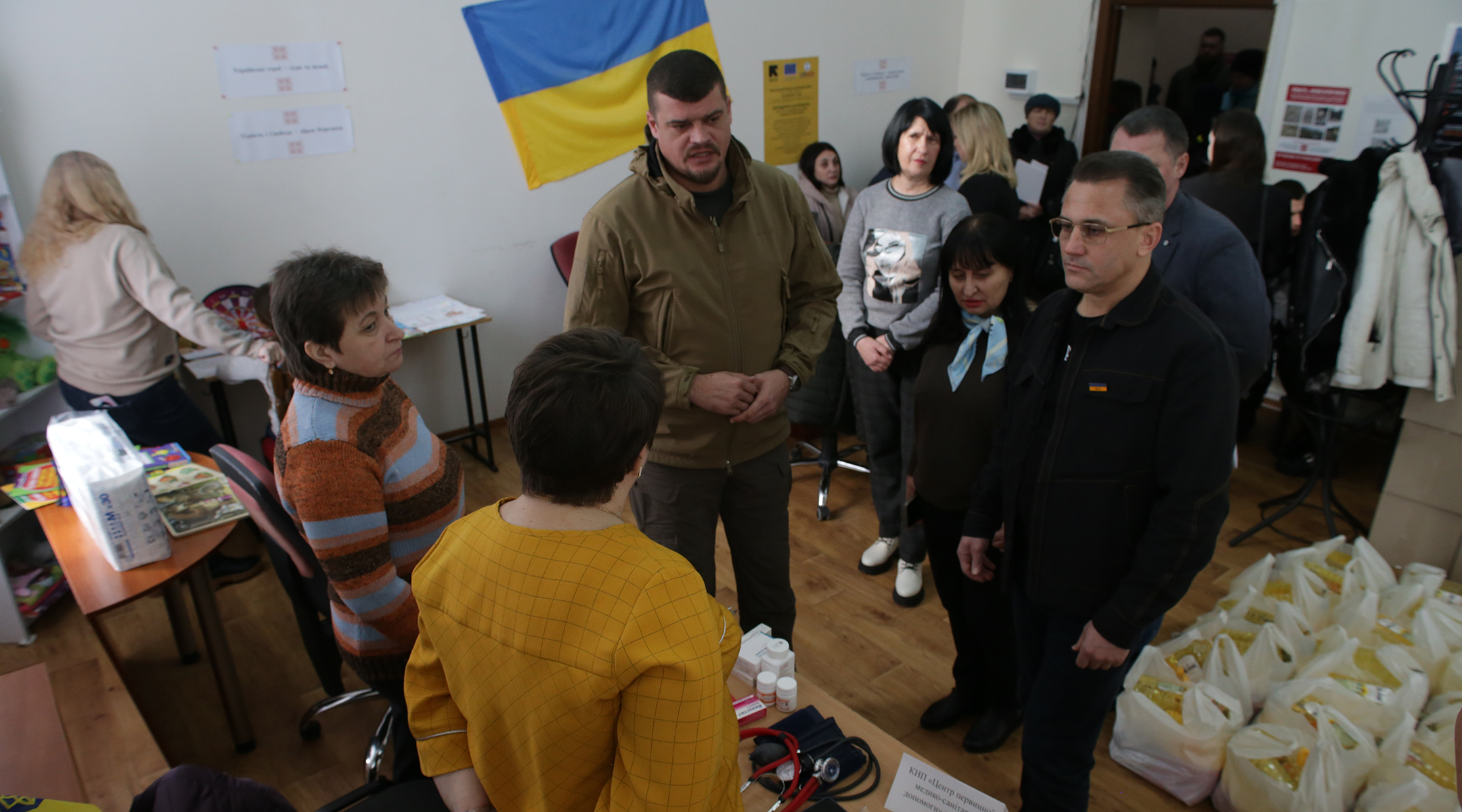
- Back then, I asked you if you would be changing the team. Judging by the Oblast Administration’s website, the Deputy Heads appointed by your predecessor still hold their positions. Are you happy with them, or is it hard to find the right professionals under the circumstances?
- Well, firstly, we are short of staff. However, this is not the main reason for keeping a person in office if he or she does not make it. And, secondly, the heads of several departments have already been replaced. A few managers still remain, whose fate will be decided on the basis of their six months’ performance, when it becomes clear who is capable of what. The main requirement is to be able to work in, let’s say, extreme environment, in the absence of one’s own territory, across the entire country. In fact, this is the key reason behind the staff changes. There are those who are “catching up” and those who have to be put on track. But the work continues, and I think that right now we are moving in the right direction.
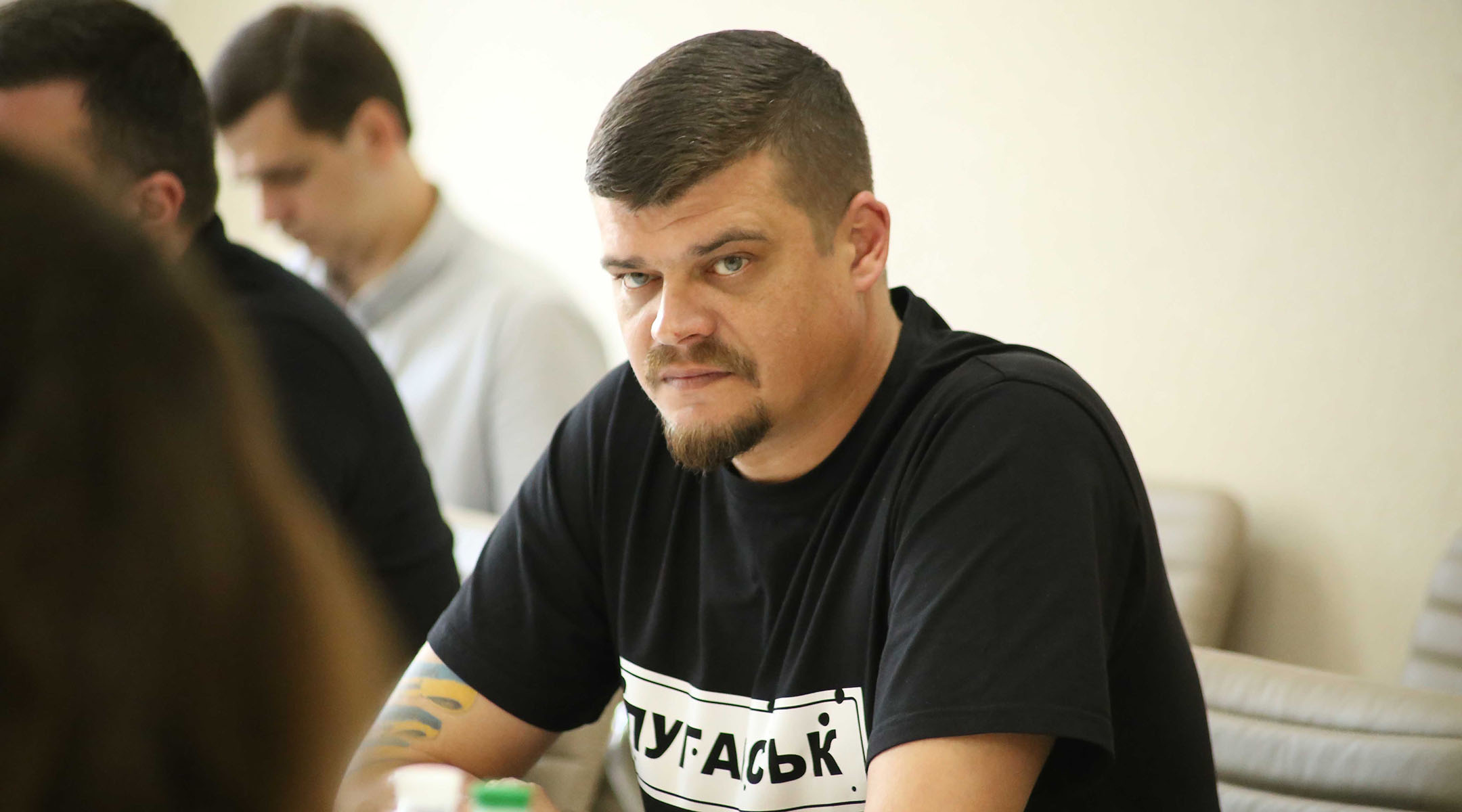
- I must admit that when I learned that a police officer had been appointed to this position, I thought that the new OMA head would not be too familiar with economic affairs. Nevertheless, reports keep coming in that a new facility has been opened or a service has been launched. Please tell us about your achievements in this field.
- We never stopped working, but I wouldn’t call it achievements… This is our daily work. For example, we opened two hospitals with entirely modern equipment, set up an outpatient department, and expanded the shelter. Now we will expand the shelter in Dnipro even more, following negotiations with our foreign partner.
We also have a few major projects in the pipeline, which we are currently negotiating with our partners. These are also educational projects, where we provided 70 percent of our children with tablets, and teachers — with laptops. There is some unfinished business, but I hope that by the end of the year or in January, together with the government authorities, volunteers, and international organizations, we will complete this program. We conducted a full summer health campaign: there were many trips, many children were sent abroad by international organizations, and many were organized by the administrations themselves. We conducted a full summer recreation campaign with numerous trips, many children sent abroad by international organizations, and numerous events held by the administrations themselves.
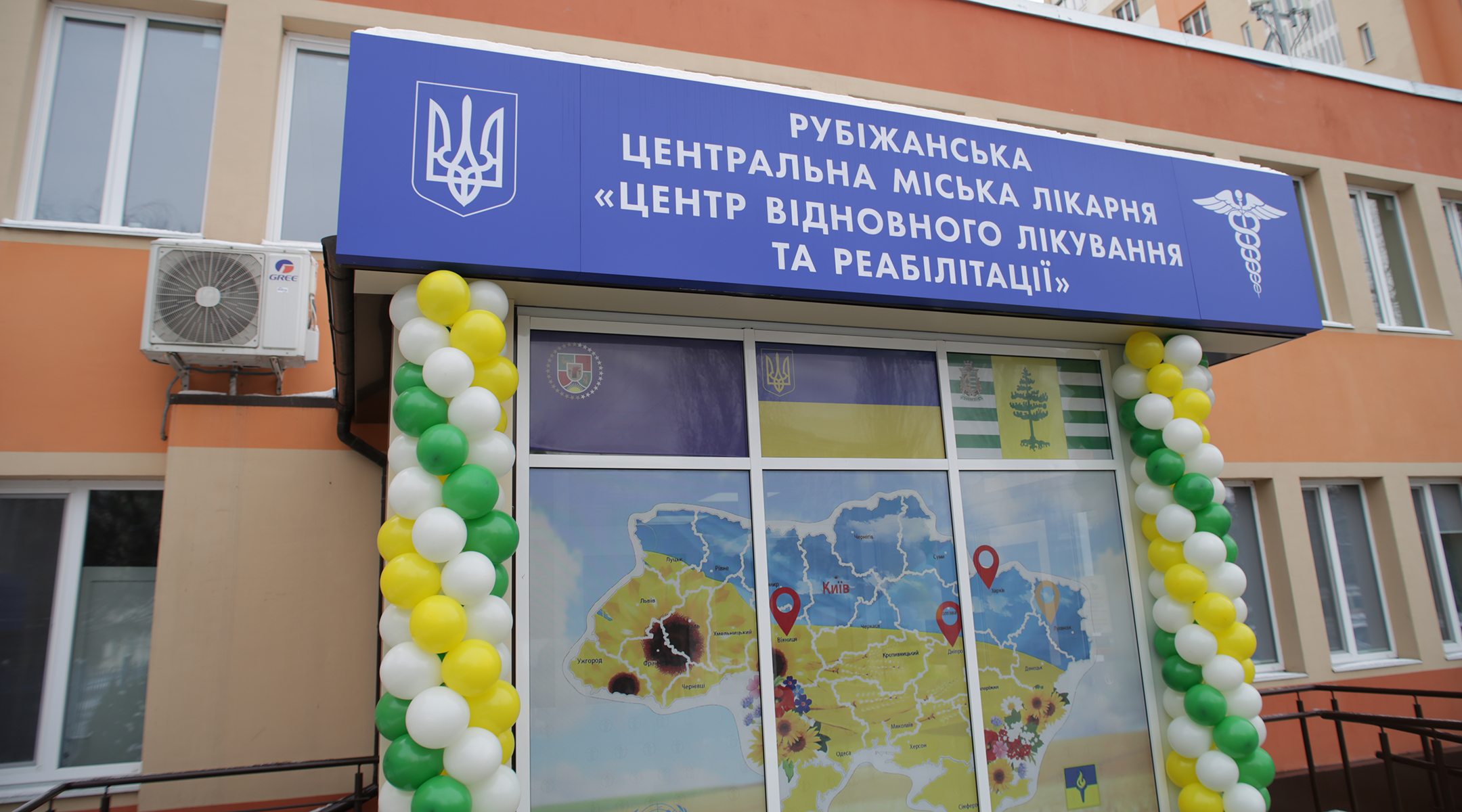
GRIND THE RUINS INTO ROAD METAL
- Furthermore, the work on de-occupation, which is an essential part of our efforts, never stops. This is because we need to be ready for the liberation of the oblast and, as a resident of Luhansk, you are perfectly aware that the enemy caused colossal damage to both our road and construction infrastructure, including critical facilities that provided power and water. All this and much more will have to be restored with enormous effort. We posted information that projects worth more than a billion hryvnias have been prepared. We also attract international partners. There is a lot of work to do right now together with international institutions, including replenishment of material and technical reserves, which were almost completely gone in 2022. Something was lost during hostilities; a lot went to support our Armed Forces. Therefore, we are now accumulating resources to support sustainable work that must be done after de-occupation. This is also one of the priorities in our work.
- Speaking of international aid. The Rebuilding Ukraine International Forum was recently held, attended by Luhansk residents. What was negotiated there and, generally speaking, what are the partners willing to do now? Will they restore housing and social facilities or maybe someone is interested in our enterprises? Before the large-scale Russian invasion, the Belgians were very keen on their heritage in Lysychansk…
- I don’t have a clear-cut answer about the Belgians and Lysychansk; they are viewing various options there. As for ReBuild Ukraine, it is a large international platform for the development and implementation of economic projects, ranging from schools to large water supply and sewage facilities… We are currently negotiating with a yet unnamed country to recycle our destroyed concrete structures. Not merely to dismantle and move them to landfills, but to recycle and use them in order to restore roads and build utility facilities. A wide range of projects was discussed, and this is just the beginning. It was definitely worth going there. We’ve made the first leap towards working with international donors. Otherwise, if you don’t have any big projects outlined and planned, if clear vision is lacking, international partners will never want to work with you.
One should come to the negotiations with a set of prepared documents. Which we actually did. Today, we continue to work on projects. The enemy is destroying everything, and we’ll have to restore many things. We have signed memoranda of intent, but we must understand that every foreign foundation, every foreign entity, in addition to the logistical assistance that they can provide now to support functioning of the economic system, is looking closely at how their funds are being used. Their condition is de-occupation. Such forums are gathered to prepare projects so that additional grant funding could be obtained immediately and any specific project could be implemented. Today, carrying out any large-scale works along a narrow strip of the de-occupied territory of the Luhansk Oblast is impossible because of the powerful enemy shelling.
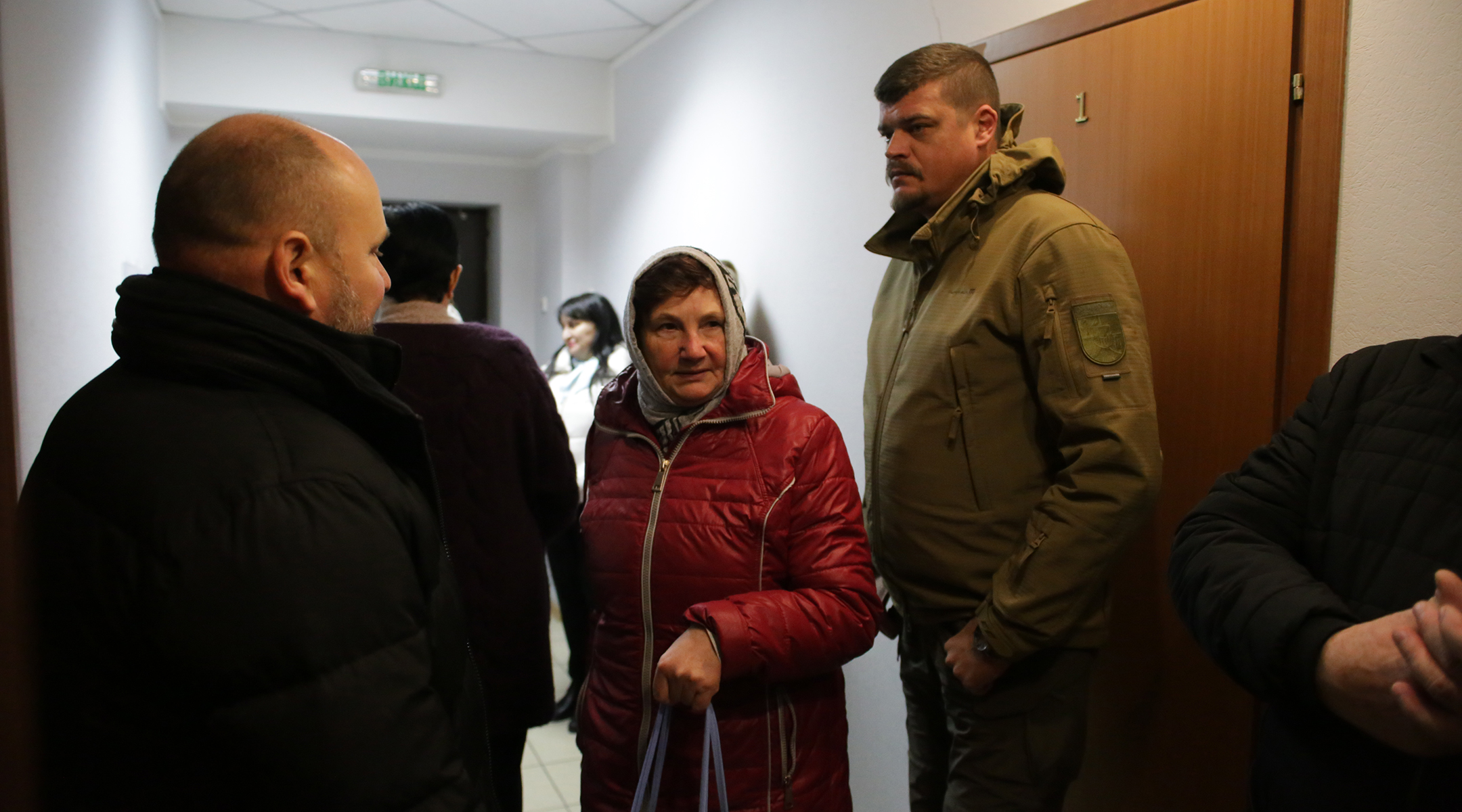
- I think it’s very exciting to know that there is willingness to recycle concrete ruins into building materials. Have similar technologies been used anywhere else in the world?”
- Yes, such experience indeed exists. These two well-known companies, with whom negotiations are underway, have powerful equipment that completely processes reinforced concrete products into gravel of various formats, which can be used both for laying any main roads and for casting building structures with the addition of proprietary chemical compounds. Given the widespread destruction, we are very interested in such cooperation. By the way, one of the projects involves disposal and recycling of household waste. We are aware that creating dedicated landfills for both household and construction waste is not an option. This would be environmentally unfriendly, wrong, and make the oblast unattractive for investments.
IT’S WAY TOO EARLY TO WAVE GOODBYE TO COAL MINES
- Do you have a picture of what the Luhansk Oblast will become economically and environmentally? To put it bluntly, our oblast is a coal mining area. The invaders ‘did their best’ to save Ukraine from the headaches caused by unprofitable mines, which are the majority in the Luhansk Oblast. But what is to be done with poisonous mine waters when they start coming up to the surface?
- As for coal mines, they are indeed one of our biggest problems. We are developing a few ideas, including water purification, but we don’t have access to that area, and our institutions are unable to assess how much they have been affected and what exactly should be done. This is the most pending question for the region, which can cause major troubles. It’s one thing when the water merely comes up to the surface. It will be enough to filter it and channel it into some reservoirs. However, powerful rocket and artillery attacks have damaged mine structures, and they will have to be reinforced in all likelihood. Some mines may still be restored to profitability. This is a very large complex. We are working with government agencies on what to do with the mines and how to ensure environmental safety.
In addition to coal mines, there is a very wide range of things that can affect the environment, including riverbeds altered by flooding. Obviously, the enemy has not addressed the problems of pollution and emissions, including man-made, for two years and is not going to. Here, we’ll also have a large cluster of work. Indeed, environmental issues will be our top priority.
- De-occupied territories. Didn’t these blizzards cause a disaster there?
- The situation is difficult. But we have stocked food supplies in advance; the medical segment has also been covered. Firewood was purchased in good time, while the military and law enforcement officers helped deliver it to the homes that were particularly affected. Together with the oblast administration and volunteers, our law enforcement officers continue reaching our citizens and delivering aid. We are constantly coordinating with that area and, in principle, all the needs are being met with the help from mobile police teams and our representatives. As of now, there are no critical aspects there. If the situation deteriorates, evacuation routes are in place. In case of injury or trauma to any citizen, we have established cooperation with both the Armed Forces and law enforcement agencies of the Luhansk Oblast, which are ready to take all necessary measures immediately.
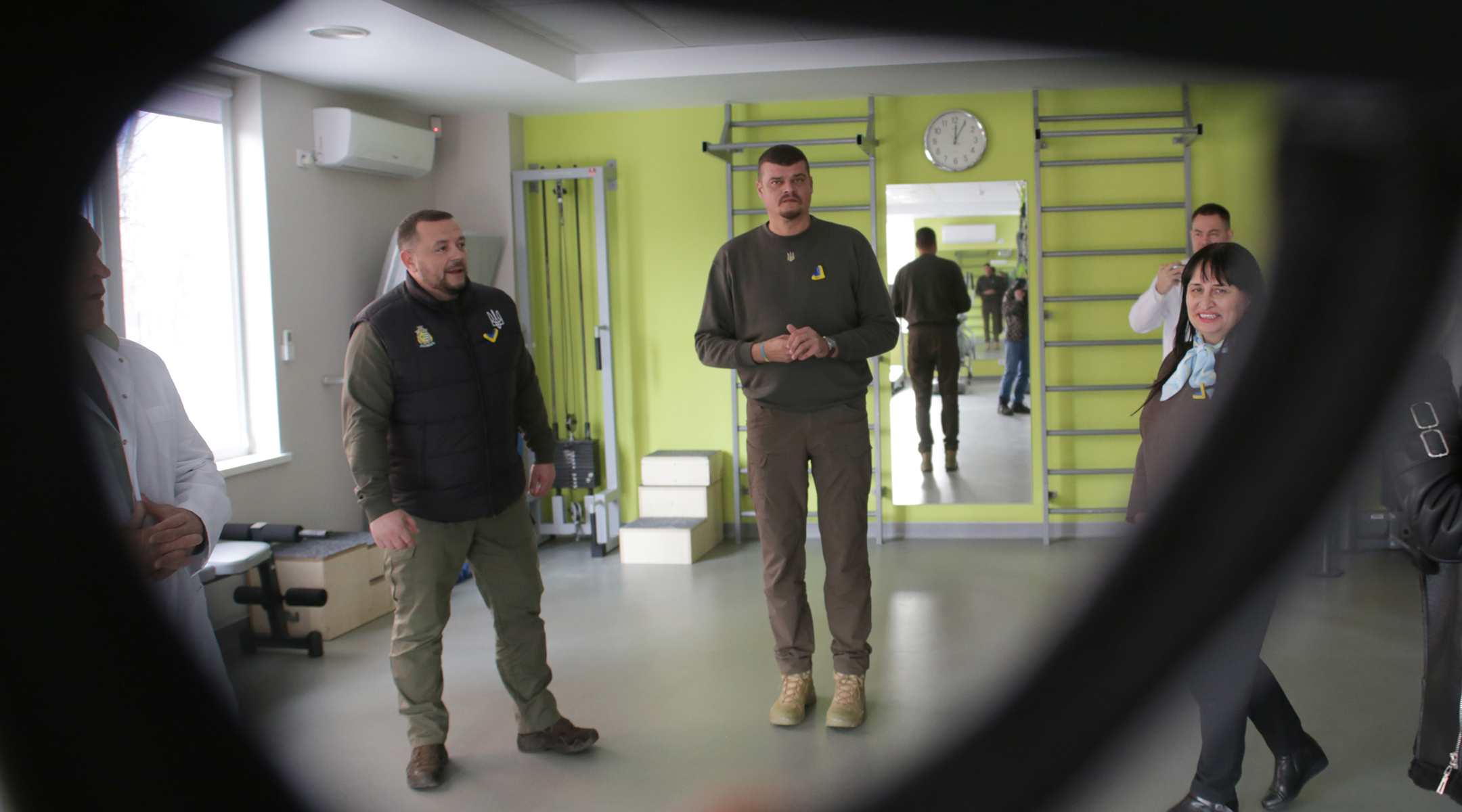
DEATH TO ENEMIES!
- Judging by your comments, including those made to Ukrinform, you are quite familiar with the situation in the oblast’s occupied territory. Without disclosing your sources, what can you tell us about the crimes committed by Russian invaders and their local henchmen? I mean prominent collaborators, such as Leonid Pasichnyk or Denis Miroshnichenko (leader of the so-called “People’s Council of the LPR.” — M. B).
- The biggest crime that is being committed there right now is the forced mobilization and passportization of people. Sending them into battle against their fellow countrymen without any regard for human rights or international treaties. As for the high traitors you named and a few others… I always said that nobody needed traitors. And we can see that eventually they began to dispose of each other, dividing spheres of influence. Russia arrived to complete the process.
- Do you know now what happened to Ihor Kornet (‘acting Minister of Internal Affairs of the LPR,’ who was blown up in a barbershop on May 15. — Ed.)? Or whether Ihor Plotnytskyi (ex-leader of the ‘LPR,’ deposed by Kornet in 2017. — Ed.) was actually poisoned?
- Operations of our partisans, our special services are their exclusive domain, and I cannot answer for them. According to the available information, if we are speaking about Kornet, he seems to be alive, sitting inside his house, not even venturing outside. But retribution will come for what he did. As for Plotnytskyi, I know what everyone else knows. In my opinion, he has already held out for too long. I’ve said it before and I’ll say it again: The Russians will cleanse those ‘republics’ of their ‘activists,’ and what the Russians don’t finish, our special services will. Therefore, there is no need to pay any particular attention to them.
- I fully agree with you, but the reader is curious. Here is another question: In the village of Zaitseve, Svatove District, there is either a camp or a zone where Russian ‘refusniks’ — those who refused to participate in the fighting — are held. Do you know anything about it?
- I’ll tell you even more — there is not just one such camp. There is a camp in Rozsypne (in the Svatove District), there is one near Kreminna… Some are closing, while others are opening. They have a large number of evaders who do not want to go into battle. Obviously, such people are taken to the front line under various pretexts, almost at gunpoint. We have repeatedly heard from Russian prisoners of war that their commanders are standing behind them, threatening to shoot them if they do not storm a position. We have seen a threefold increase in the number of medical camps. But the number of wounded in the so-called ‘meat waves’ is exorbitant even for the number of medical facilities that are located throughout the occupied Luhansk Oblast, and there is information about overcrowded hospitals in the Rostov and Kursk Oblasts. This includes military field hospitals. And this number of ‘refuseniks’ shows that there are people among Russians with some brains left who realize that they are simply being disposed of. But, to be honest, Russia is a country that offers no choice, and I think that these people will be forced by all means available to fulfill the lunatic tasks set by the Russian leadership. So, I wouldn’t be surprised if these camps could be repurposed as retraining camps. But, once again, this is the domain of our special services, our Armed Forces, and in recent months we have seen very good results of the ‘impact made by our Armed Forces on such locations where Russian terrorist troops concentrate.
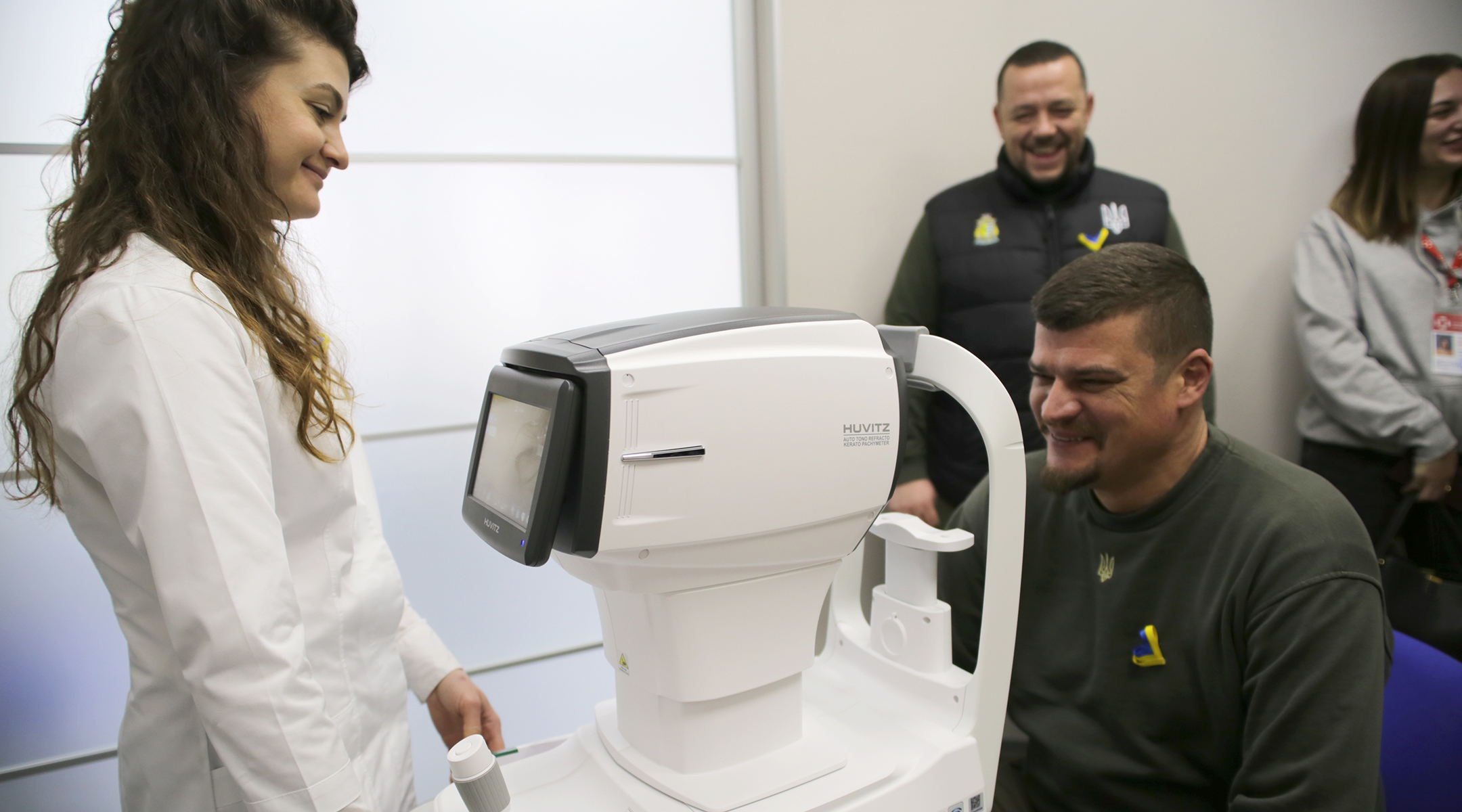
IT’S MORE VISIBLE FROM SPACE
- Last question. There was information that certain changes in the social policy regarding internally displaced persons had been slated. What should they be ready for?
- Any changes in the social policy towards IDPs are the prerogative of the Ministry of Reintegration. We work together with it all the time and have expanded the range of operation of our hubs set up for this category of people. Now, depending on the type of hub, both medical and legal services are available there. Our Administrative Services Centers have also been put into operation. They are now offering advice on the most pressing issue today, which is compensation for damaged housing. A resolution of the Cabinet of Ministers, where all our groundwork has been taken into account, is already on its way — the previous version disregarded the proposals for remote survey with siting. True, the territory is occupied, but satellite sensing can be used to determine the extent of destruction for people who lost their homes and, based on this, compensation can be awarded by the state — something that is already being done in some oblasts. The pilot project has now been launched in Melitopol in accordance with the resolution — it was us who, together with Melitopol, Mariupol, and the Donetsk Oblast Military Administration, approached the Cabinet of Ministers with a proposal to amend the resolution. Based on our proposals, amendments were made, and now remote sensing of the land is about to start to identify and map the buildings. If done correctly, as soon as the appropriate algorithm has been developed, applications are received — we have processed 42,000 applications so far — and we are provided with guidelines on calculation of payments, we will immediately proceed with them.
Mykhailo Bublyk, Lysychansk
